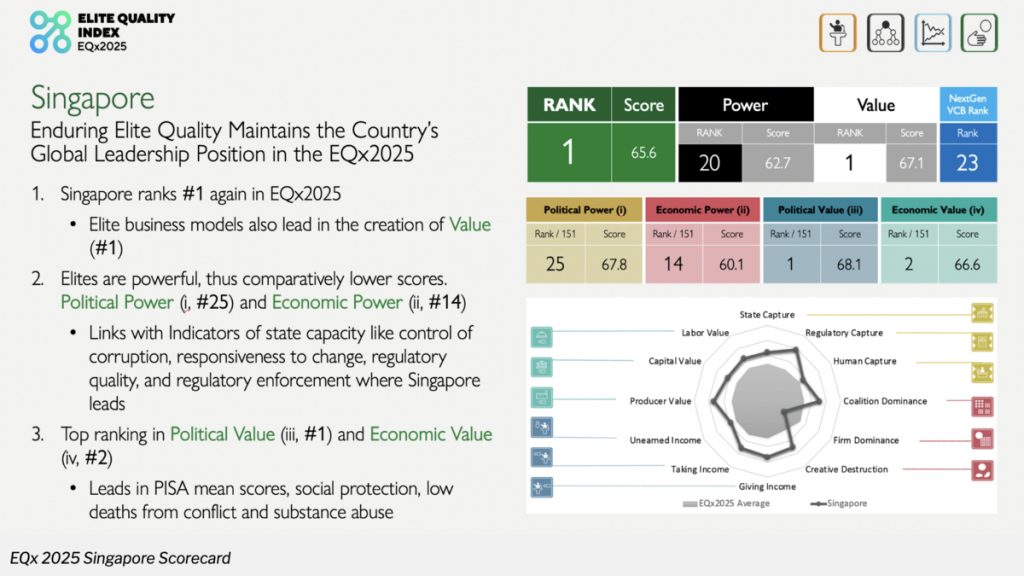[ad_1]
SINGAPORE: Singapore has topped the global Elite Quality Index (EQx) again in 2025, highlighting the city-state’s effective technocratic governance and institutional design.
According to SMU Associate Professor Alwyn Lim, while Singapore’s elites have consistently created value for society rather than extracting it, its dependence on global integration poses challenges as deglobalisation accelerates. He said, “The capacity to sustain elite-driven value creation in an age of decoupling will be key.”
This year’s EQx, released on Monday (May 19) by the Singapore Management University (SMU) and the University of St. Gallen, ranked 151 countries using 149 indicators. These included innovation, corruption control, regulatory quality, and—for the first time—artificial intelligence (AI) readiness.
The report is based on elite theory in economic development, which suggests that a nation’s economic outcome depends largely on its most powerful players, including business leaders, politicians, or cultural influencers, rather than broad societal or institutional factors alone.
However, while Singapore retained the top spot, the inclusion of AI has shaken the global order.
The United States saw the most dramatic jump, rising from 16th place to 2nd overall. This shift was mainly due to five new AI-related indicators. Switzerland, last year’s runner-up, dropped to third.
In Asia, Japan ranked fourth, followed by South Korea, with China in 19th place, thanks in part to its advances in AI. India also improved dramatically, jumping to 60th from 118th in just four years.
Singapore ranked near the top in AI readiness but came in only 23rd for sustaining value creation across generations, compared to Denmark or Switzerland.
Prof Lim noted, “Singapore’s model, rooted in technocratic competence, openness to global markets, and a high degree of institutional trust, continues to set the regional benchmark, but its success is deeply intertwined with globalisation, which is now under strain.”
He added that the challenge now is sustaining elite-driven innovation in a world tilting towards deglobalisation. “The durability of this model will be a critical test in the coming years, not just for Singapore, but for other export-dependent economies,” he said.
The report said emerging economies like Indonesia, the Philippines, and Vietnam may not be among the top-ranked yet, but they are becoming more important to regional stability and economic systems.
This only suggests that Asian economies are no longer just “emerging” but are shaping future value creation, especially through technology and innovation. However, the report noted that to sustain this progress, they’ll need to focus on fairness, future planning, and shared prosperity.

/TISG
Read also: Singapore, ranked 3rd happiest city in the world, joined by Seoul and Taipei in Asia
[ad_2]
Source link

